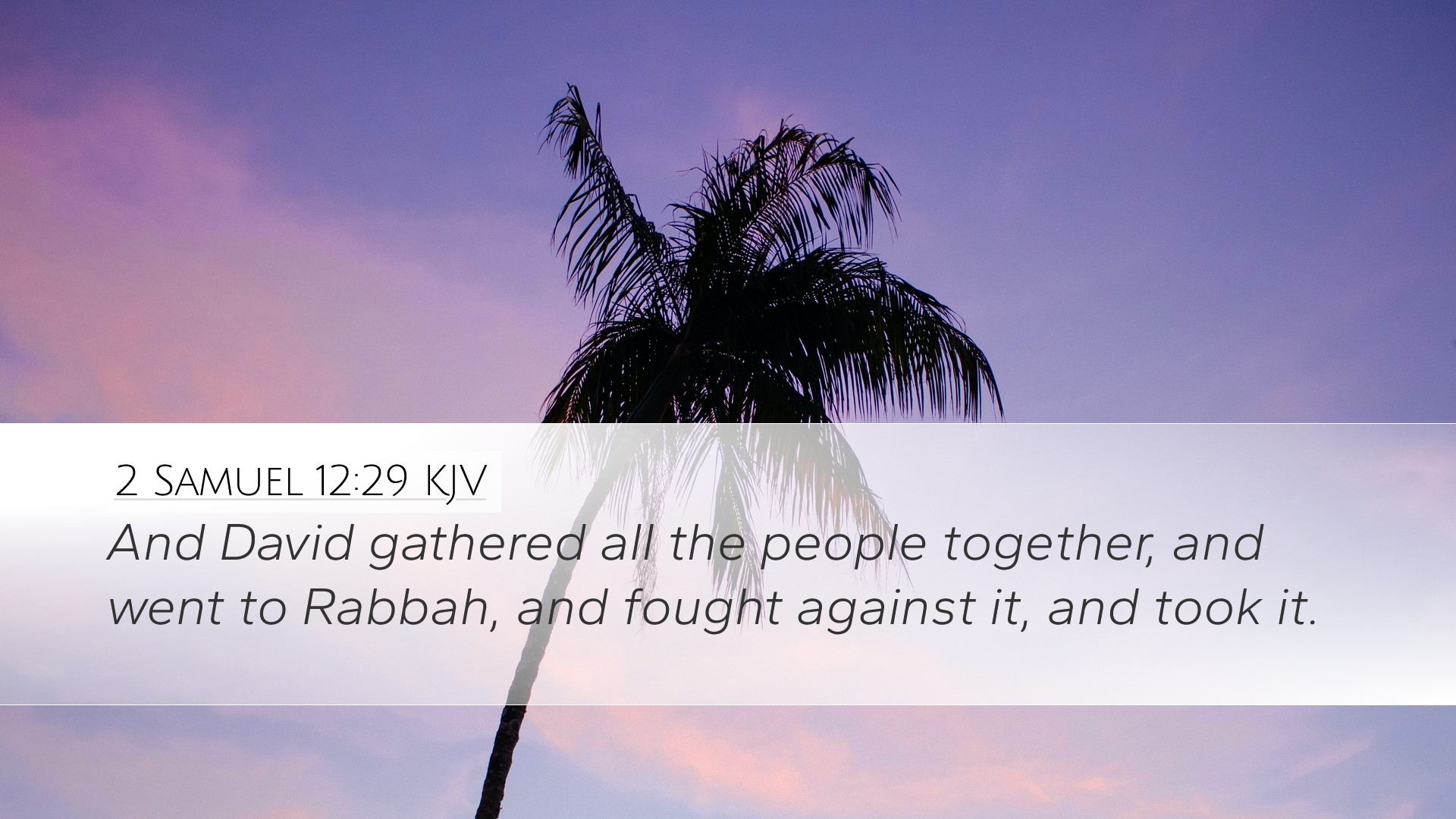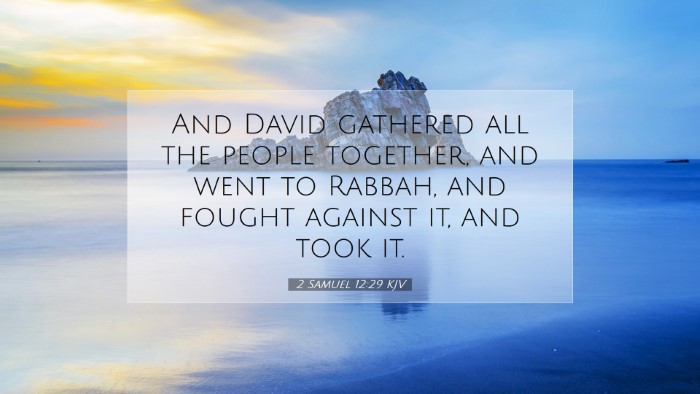Commentary on 2 Samuel 12:29
Bible Verse: "And David gathered all the people together, and went to Rabbah, and fought against it, and took it."
Introduction
This passage follows one of the most critical moments in David's life—the confrontation with Nathan the prophet regarding his sin with Bathsheba and the murder of Uriah. Herein, we find David engaging in military conquest once again, demonstrating not only his leadership and Kingly duties but also the implications of his past actions on his present circumstances.
The Context of David's Leadership
Historical Background: The backdrop of this verse involves the siege of Rabbah, a significant city belonging to the Ammonites. Following his confrontation with Nathan, David's act of gathering the people can be viewed as a move not just of military ambition, but also of personal restoration, showcasing his commitment to his role as the anointed king of Israel.
Commentators like Matthew Henry underline that David's renewed military vigor serves as a crucial balance to the moral failing he experienced. Leadership requires the ability to rise above personal failings and guide one’s people with strength.
Insights from Public Domain Commentaries
-
Matthew Henry observes that David's readiness to confront the city of Rabbah indicates his prioritization of God's honor over his failures. He notes that through this conquest, David seeks not only victory for Israel but a form of restoration for himself.
-
Albert Barnes emphasizes the military and spiritual dichotomy present in this chapter. He points out that despite facing consequences for his sins, David’s determination to engage in battle illustrates God’s continued purpose in his life. Barnes further explores the significance of David gathering the people, implying a united force under divine guidance.
-
Adam Clarke provides an in-depth examination of the Hebraic structure of the narrative. He notes that the act of gathering signifies not merely a military campaign, but a collective acknowledgment of David’s leadership. Clarke suggests that this moment reflects a turning point as David asserts his commitment to his kingship amidst personal failures.
Thematic Explorations
This passage invites deep consideration of several themes vital to theology and pastoral practice:
- The Nature of Leadership: David is portrayed as a leader who, despite personal flaws, still bears the anointing of God. This reminds contemporary leaders of the importance of humility, accountability, and the need for God’s grace.
- The Consequences of Sin: The text subtly reminds us that even though David is embarking on a military venture, the ramifications of his previous actions linger. This serves as a reflective opportunity for ministers to teach about the need for repentance and the continual impact of sin.
- Restoration Through Action: David's gathering of the people and engaging in battle can be seen as a metaphor for taking initiative after failure. The church is called to action, to redeem situations through faithful service and commitment to God's call.
Practical Applications for Modern Believers
In light of the insights gleaned from this verse, several practical applications can be drawn:
- Embrace Accountability: Just as David faced Nathan, modern believers must be open to correction and accountability in their lives.
- Act with Integrity: After moral failings, there is a need to rise up and make restitution through faithful actions in our communities.
- Lead with Empathy: Leaders should recognize their fallibility and lead in a way that fosters community and encourages collective healing after failure.
Conclusion
The narrative of 2 Samuel 12:29 serves as a profound illustration of how flawed individuals can still respond to God's calling with strength and courage. As David rallies his people to an important battle, the lesson extends well into the hearts of contemporary believers, challenging them to rise above their shortcomings. The study of this passage invites deep engagement with themes of leadership, sin, and the character of God’s grace, making it a relevant text for pastors, scholars, and students alike.


